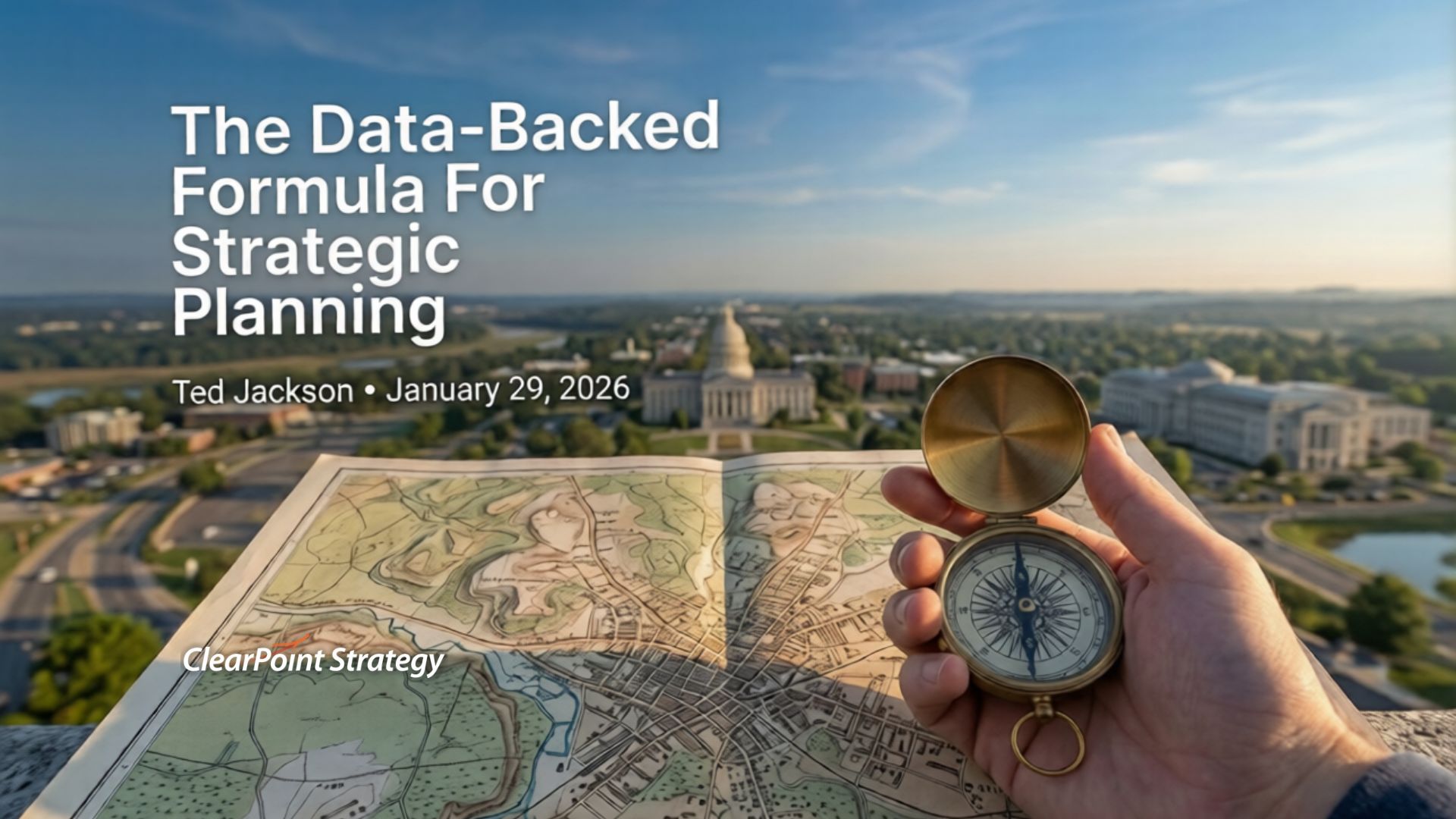Experts from high performing organizations discuss their goals in local government.
We sat down with a few experts from high performing organizations and discussed their individual journeys to ‘high performance’ and the role national networks played in making it happen!
Our panelists kicked off by walking us through the challenges and successes they experienced on the path to excellence, providing valuable lessons learned and key takeaways throughout. They brought unique perspectives on how national networks and established frameworks can support performance management in local government organizations, while emphasizing the overall importance of innovation and teamwork.
Meet your panelists:
- Lawrence Pollack - Budget Director, City of Fort Collins, CO
- Josh Edwards - Assistant Budget Director of Strategy and Performance and I-Team Leader, City of Durham, NC
- Joey Sherlock - Sr Applied Behavioral Researcher, Duke University’s Center for Advanced Hindsight
- Lauren Su - Associate Director, Certification and Community, What Works Cities, Results for America
Journey to Excellence: Achieving Baldrige and Beyond
Lawrence started the conversation by describing Fort Collins’ path to achieving the distinguished Baldrige certification, a continuous process they call their ‘Journey to Excellence’.
Why pursue the Baldrige Award? Lawrence explained his reasoning in three words – focus, framework, and feedback. Baldrige provides a focus on the customer’s needs and expectations as the foundation for achieving excellence. The Baldrige Excellence Framework outlines best practice criteria for performance assessment, which is then used by specialized examiners to provide feedback on the organization’s strengths and opportunities for improvement (OFIs). Lawrence found this feedback to be truly invaluable. He pointed out that when they won Baldrige in 2017 after a few years of applying, it happened to be the year they received the most OFIs, speaking to his point that the journey never truly ends and there is always room for improvement.
What should you do once your opportunities for improvement have been identified? Lawrence suggested using OFIs as key goals in your strategic plan! Fort Collins is now working to achieve Baldrige for a second time. Lawrence did not see their achievement in 2017 as a stopping point, but instead an opportunity to keep growing and improving their performance.
Getting Started on Your Journey
Josh started off by getting the group thinking when he posed a question: ‘What journey are you on and where are you at on that journey?’
Then he walked us through Durham’s journey to embracing strategic planning and developing a performance management culture. He spoke to the importance of getting buy-in from leadership and learning how to use data effectively to make decisions and share it with the public– especially in terms of allocation of resources and making tangible improvements for citizens. Josh also explained the role that innovation played in Durham’s journey, including developing an internal innovation team, collaborating with What Works Cities, and eventually establishing an Office of Performance and Innovation.
Josh’s final takeaway for the group was the importance of asking for help. Partnerships are crucial during any successful journey to high performance. We may each be on our own journeys, but we will be most successful if we can take shared paths.
The Human-Centered Approach to Local Government Performance
When Joey started working with Duke University’s Center for Advanced Hindsight, he thought he was moving from the UK to the US for just six months. Three years later he is still here, eagerly continuing on the Center for Advanced Hindsight’s journey and aiding as a partner in City of Durham’s as well!
The Center’s journey has involved taking on a psychological approach. Through experiments in the behavioral science and economics lab, Joey has focused on human-centered design and psychological-focused decision making when it comes to local government performance. He believes randomized control groups are the best way to get a sense for how things are going and how they can be improved.
Fostering Connection and Competition through Networks
Lauren shared how the What Works Cities (WWC) network helps provide cities with a national standard of excellence, connect world class experts to make informed decisions, and bring cities together to share best practices and learn from one another. WWC recognizes the competitive nature of cities and the strong desire to serve their citizens, and leverages this by encouraging benchmarking and thus higher performance.
Lauren shared even more information on the WWC network and why it is beneficial to join their network in a later presentation. That recap blog post can be found here.
Key Takeaways
You do not need large numbers of staff or resources to begin your journey.
- Josh said to continue down the path regardless of capacity. While this might take more time, that is okay!
- Lawrence suggested prioritizing what is important. Ask yourself: what do you really need and what works best for your community?
- Lauren emphasized that you do not need a robust data culture to get started with WWC, so don’t let that hold you back. It is okay to start small and grow from there.
Relationships with other departments during the journey are encouraged.
- Lawrence says that at Fort Collins, successes are celebrated organization wide.
- In Durham, Josh works alongside many of the other departments on certain projects, fostering a spirit of collaboration. It is important to get the right people involved from across the organization.
Educate yourself on the different frameworks and network opportunities.
- Josh suggested thinking about the skills that you need, building capacity by training people, then using the ‘high performance’ frameworks as a benchmark of progress. It is more about the individual employees and their ability to share ideas, learn, and feel valued.
- Lauren brought up the WWC courses that they provide and encouraged enrollment.
It is okay to say ‘No’.
- Lawrence understands the desire to foster innovation, but it is important to recognize where you are getting the most return on investment.
Just do it!
- Lawrence emphasized that there is no reason not to get started. You can use your strategic plan to provide organizational focus and then slowly build it out and grow from there.
- Josh recommends adding a new skill to your toolbox and then finding like-minded people who are doing the same to create an informal team. Figure out what you need to be successful and then pursue it.
A big shout out to our four panelists! Thank you for sharing your journey to high performance with us and best of luck as you continue your journey!

.svg)



![Why Strategic Planning Fails (And What To Do About It) [DATA]](https://cdn.prod.website-files.com/637e14518f6e3b2a5c392294/69792f326ab0b1ac3cc24675_why-strategic-planning-fails-and-what-to-do-about-it-data-blog-header.webp)
